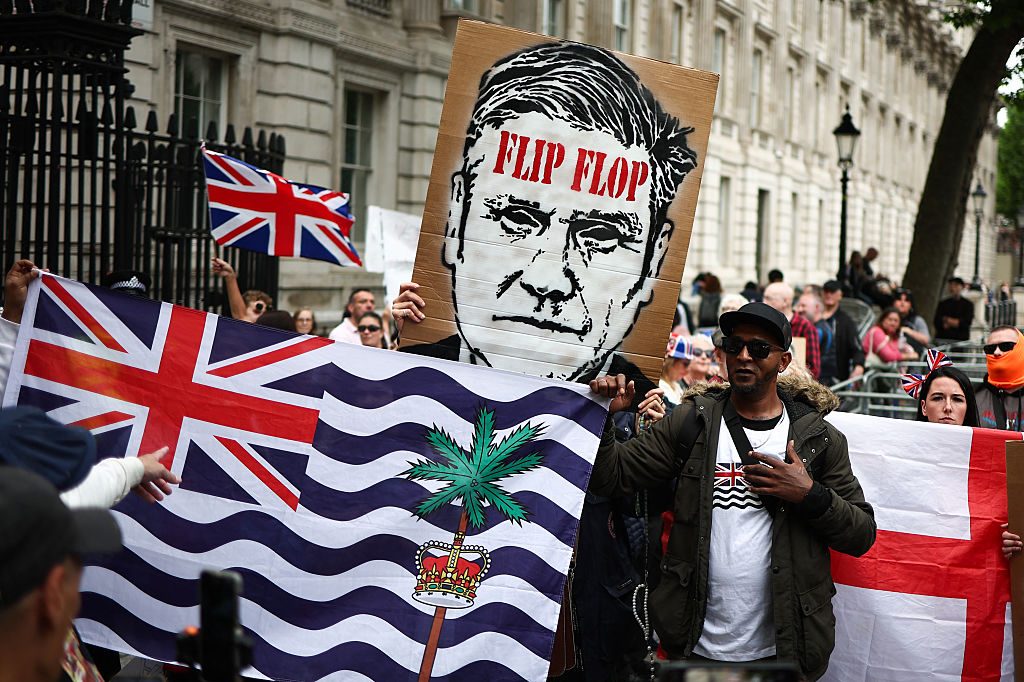As Rachel Reeves damns the laws of arithmetic while trying to block out the ever-expanding fiscal black hole in which Britain finds itself, a new Telegraph headline will have provoked another round of cursing. Journalists at the paper have unearthed a report, from the po-faced but reliable Government Actuary’s Department, which puts the cost of the Chagos deal at £34.7 billion, 10 times the Government’s widely used figure of £3.4 billion.
The Chagos deal, under which the United Kingdom will surrender the British Indian Ocean Territory to Mauritius and then pay rent for 99 years to use Diego Garcia as a military base, has already proved one of Labour’s most toxic decisions in government.
Unlike other contentious decisions, such as the addition of VAT to private school fees, there is little domestic constituency for the idea of giving territory to a foreign state, then paying its government for the privilege of using a base which is already British. If the deal goes through, the only people whose taxes will be cut by Keir Starmer will be Mauritians, and there are no votes in that — not in this country, at any rate.
In truth, the higher figure comes with many caveats. While £34.7 billion is the nominal figure for the 99-year lease over its lifetime, this does not factor in the effects of inflation eating away at the value of the pound. Adjusted for inflation, the cost is closer to £10 billion. Adjusted for the “Social Time Preference Rate” — what Treasury wonks call the principle that we value current spending more than we value future spending — the figure falls to the £3.4 billion the Government is using.
However, this is barely relevant. If the Chagos deal is good and enhances the United Kingdom’s power and security, its cost is simply a secondary consideration, one among several to be balanced. If the Chagos deal is rotten in principle, a single pound would be too much to send to Port Louis. As I and others have detailed for Policy Exchange, there is no basis whatsoever for the deal, so it is indeed a rotten one.
The Chagos Islands were sold by the father of the present prime minister of Mauritius to the United Kingdom in 1965 in return for hard currency. It was only in the Eighties that, having collected and spent the initial payment, Mauritius decided to allege that the deal was a coerced one. The International Court of Justice advisory opinion on the territory which supports the handover as a matter of international law, much vaunted by supporters of the deal, is legally without any effect.
Most Chagossians, who are largely British nationals, are opposed to a deal that hands over their homeland to a country which has systematically mistreated them. It is worth noting the deal does not give them a right to return to the Chagos, and the sum of money intended to buy them off under the draft treaty is a pittance compared to the mountains of cash Mauritius receives.
Unfortunately, “But the Hague said so” has proven too strong an argument for Starmer and Lord Hermer. Thus, we have the distressing sight of Chagossians protesting against a deal which the British Government still justifies using the plight of their expulsion. This is a strategy engineered in large part by Philippe Sands KC, the (now-)Mauritian lawyer whose services to his adopted country were surely worth every penny. He is also a close friend of the British Prime Minister.
When Parliament resumes, MPs and peers will be asked to approve the surrender of the Chagos by Act of Parliament. Surely some of them understand that whenever the Government cuts anything in the coming years, they will be asked why they chose to send that money to the Republic of Mauritius instead. And they will have no good answer, for there is none at all.











Join the discussion
Join like minded readers that support our journalism by becoming a paid subscriber
To join the discussion in the comments, become a paid subscriber.
Join like minded readers that support our journalism, read unlimited articles and enjoy other subscriber-only benefits.
Subscribe